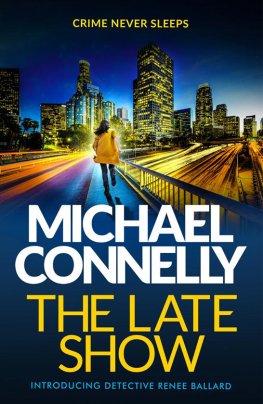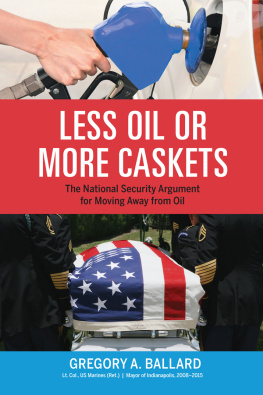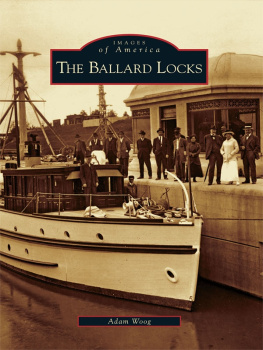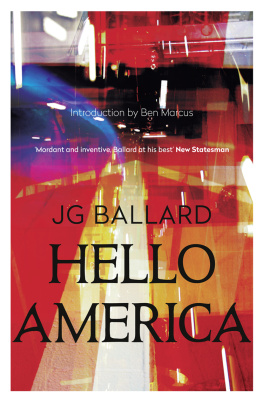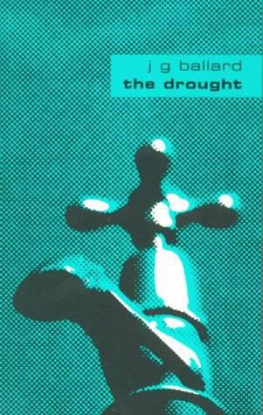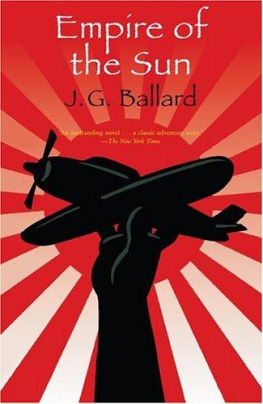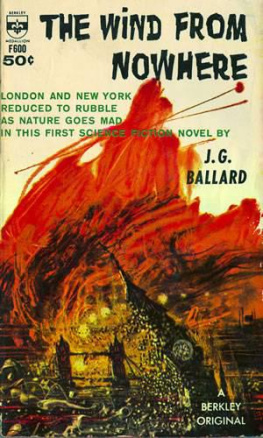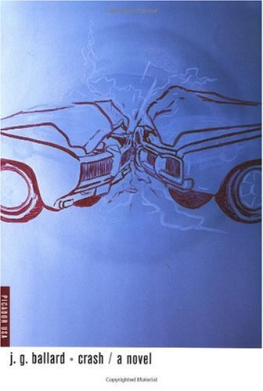Michael Connelly
The Dark Hours
This is for Robert Pepin,
translator, editor, friend since the start.
Merci beaucoup, mon ami.
It was supposed to rain for real and that would have put a damper on the annual rain of lead. But the forecast was wrong. The sky was blue-black and clear. And Rene Ballard braced for the onslaught, positioning herself on the north side of the division under the shelter of the Cahuenga overpass. She would have preferred being alone but was riding with a partner, and a reluctant partner at that. Detective Lisa Moore of the Hollywood Division Sexual Assault Unit was a day-shift veteran who just wanted to be home with her boyfriend. But it was always all hands on deck on New Years Eve. Tactical alert: everyone in the department in uniform and working twelves. Ballard and Moore had been working since 6 p.m. and it had been quiet. But it was now about to strike midnight on the last day of the year and the trouble would begin. Added to that, the Midnight Men were out there somewhere. Ballard and her reluctant partner needed to be ready to move quickly when the call came in.
Do we have to stay here? Moore asked. I mean, look at these people. How can they live like this?
Ballard surveyed the makeshift shelters made of discarded tarps and construction debris that lined both sides of the underpass. She saw a couple of Sterno cook fires and people milling about at their meager encampments. It was so crowded that some shanties were even pressed up against the mobile toilets the city had put on the sidewalks to preserve some semblance of dignity and sanitation in the area. North of the overpass was a residential zone of apartments fronting the hillside area known as the Dell. After multiple reports of people defecating in the streets and yards of the neighborhood, the city came through with the portable toilets. A humanitarian effort, it was called.
You ask that like you think they all want to be living under an overpass, Ballard said. Like they have a lot of choices. Where are they going to go? The government gives them toilets. It takes their shit away but not much else.
Whatever, Moore said. Its such a blight every overpass in the fucking city. Its so third world. People are going to start leaving the city because of this.
They already have, Ballard said. Anyway, were staying here. Ive spent the last four New Years Eves under here and its the safest place to be when the shooting starts.
They were quiet for a few moments after that. Ballard had thought about leaving herself, maybe going back to Hawaii. It wasnt because of the intractable problem of homelessness that gripped Los Angeles. It was everything. The city, the job, the life. It had been a bad year with the pandemic and social unrest and violence. The police department had been vilified, and she along with it. Shed been spat on, figuratively and literally, by the people she thought she stood for and protected. It was a hard lesson, and a sense of futility had set upon her and was deep in the marrow now. She needed some kind of a break. Maybe to go track down her mother in the mountains of Maui and try to reconnect after so many years.
She took one of her hands off the wheel and held her sleeve to her nose. It was her first time back in uniform since the protests. She could make out the smell of tear gas. She had dry-cleaned the uniform twice but the odor was baked in, permanent. It was a strong reminder of the year that had been.
The pandemic and protests had changed everything. The department went from being proactive to reactive. And the change had somehow cast Ballard adrift. She had found herself more than once thinking about quitting. That is, until the Midnight Men came along. They had given her purpose.
Moore checked her watch. Ballard noticed and glanced at the dashboard clock. It was off by an hour, but doing the math told her it was two minutes till midnight.
Oh, here we go, Moore said. Look at this guy.
She was looking out her window at a man approaching the car. It was below 60 degrees but he wore no shirt, and he was holding his dirt-caked pants up with his hand. He wore no mask either. Moore had her window cracked but now hit the button and closed and sealed the car.
The homeless man knocked on her window. They could hear him through the glass.
Hey, officers, I got a problem here.
They were in Ballards unmarked car but she had engaged the flashing grille lights when they parked in the median under the overpass. Plus they were in full uniform.
Sir, I cant talk to you without a mask, Moore said loudly. Go get a mask.
But I been ripped off, the man said. That sumbitch oer there took my shit when I was sleepin.
Sir, I cant help you until you get a mask, Moore said.
I dont have no fucking mask, he said.
Then Im sorry, sir, she said. No mask, no ask.
The man punched the window, his fist hitting the glass in front of Moores face. She jerked back even though it had not been a punch intended to break the glass.
Sir, step back from the car, Moore commanded.
Fuck you, he said.
Sir, if I have to get out, youre going to County, Moore said. If you dont have corona now, youll get it there. You want that?
The man started to walk away.
Fuck you, he said again. Fuck the police.
Like I never heard that before, Moore said.
She checked her watch again, and Ballard looked back at the dash clock. It was now the final minute of 2020, and for Moore and most people in the city and the world, the year couldnt end soon enough.
Jesus Christ, can we move to another spot? Moore complained.
Too late, Ballard said. I told you, were safe under here.
Not from these people, Moore said.
It was like a bag of popcorn cooking in a microwave. A few pops during the final countdown of the year and then the barrage as the frequency of gunfire made it impossible to separate it into individual discharges. A gunshot symphony. For a solid five minutes, there was an unbroken onslaught as revelers of the new year fired their weapons into the sky following a Los Angeles tradition of decades.
It didnt matter that what goes up must come down. Every new year in the City of Angels began with risk.
The gunfire of course was joined by legitimate fireworks and firecrackers, creating a sound unique to the city and as reliable through the years as the changing of the calendar. The over/under at roll call was eighteen in terms of calls related to the rain of lead. Windshields mostly would be the victims, though the year before, Ballard had caught a callout on a case in which a bullet fell through a skylight and hit a stripper on the shoulder as she was dancing on a stage below. The falling bullet didnt even break the skin. But a jagged piece of falling skylight glass did give a customer sitting close to the stage a new part in his hair. He chose not to make a police report, because it would reveal that where he was didnt match where he had told his family he would be.
Whatever the number of calls, patrol would handle most of them unless a detective was warranted. Ballard and Moore were mostly waiting for one call. The Midnight Men. It was a painful reality that sometimes you needed predators to strike again in hopes of a mistake or a new piece of evidence that could lead to a solve.
The Midnight Men was the unofficial moniker Ballard had bestowed on the tag team rapists who had assaulted two women in a five-week span. Both assaults had occurred on holiday nights Thanksgiving and Christmas Eve. The cases were linked by modus operandi, not DNA, because the Midnight Men were careful not to leave DNA behind. Each attack started shortly after midnight and lasted as long as four hours while the predators took turns assaulting women in their own beds, ending the torture by cutting off a large hank of each victims hair with the knife that had been held to her throat during the terrifying ordeal. Other humiliations were included in the attacks and helped link the cases beyond the rarity of a two-man rape team.

![Majkl Konnelli The Dark Hours [Harry Bosch - 23]](/uploads/posts/book/926732/thumbs/majkl-konnelli-the-dark-hours-harry-bosch-23.jpg)
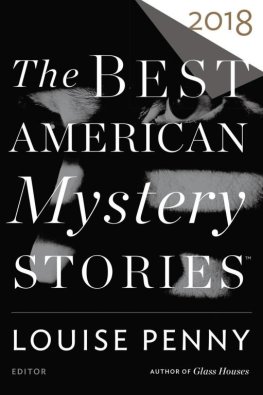
![Majkl Konnelli - The Night Fire [Harry Bosch - 22]](/uploads/posts/book/873181/thumbs/majkl-konnelli-the-night-fire-harry-bosch-22.jpg)

